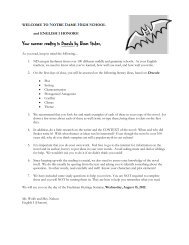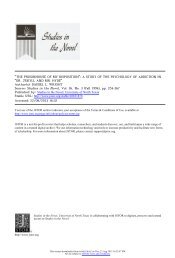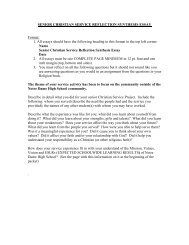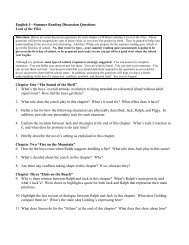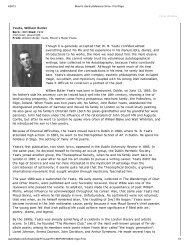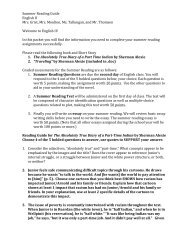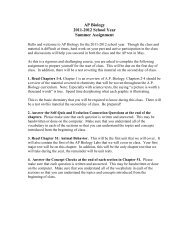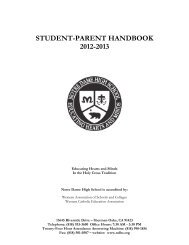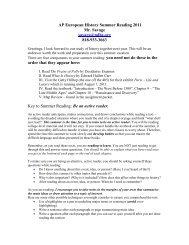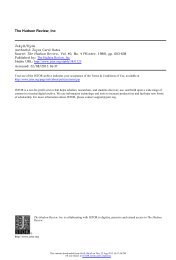Summer Assignment for AP European History:
Summer Assignment for AP European History:
Summer Assignment for AP European History:
You also want an ePaper? Increase the reach of your titles
YUMPU automatically turns print PDFs into web optimized ePapers that Google loves.
C. Read The Prince and prepare <strong>for</strong> discussion<br />
We will be having a discussion in class covering the following questions. Your<br />
assignment is to be prepared to fully participate in this discussion. In order to do<br />
this, please take notes from the book <strong>for</strong> each of the questions so as to be ready to<br />
discuss these questions in class.<br />
• You should have notes <strong>for</strong> each of the questions<br />
• Notes should include major points, ideas, and examples that help you<br />
answer the question AS WELL AS the chapter in your book in which you<br />
found the in<strong>for</strong>mation (so that we can examine the passage as a class).<br />
• Write in your book (underline, write in margins, etc.) so that you can<br />
easily find the sections to which your notes refer. This will allow you to<br />
easily find these sections during the discussion if necessary.<br />
• Your notes do not have to be in complete sentences and will not be graded<br />
<strong>for</strong> spelling, punctuation, neatness, etc.—they’re YOUR notes… simply<br />
make sure you can read and use them! I will be collecting your notes after<br />
the discussion to check <strong>for</strong> completion.<br />
• You may share ideas with a colleague, but simply copying a friend’s notes<br />
will be considered cheating and result in a zero.<br />
• Grades will be based on quality of notes and participation in the class<br />
discussion<br />
• Due date: first day of class<br />
• Your notes should be sufficient so that you can contribute an in<strong>for</strong>med<br />
opinion to the class discussion and back that opinion up with sufficient<br />
evidence from the text.<br />
Discussion Questions:<br />
1. What is Machiavelli’s view of human nature? In what passages is this stated most<br />
clearly? In your opinion, are his views of human nature accurate?<br />
2. Why does Machiavelli say that it is better <strong>for</strong> a prince "to be both loved and<br />
feared"? Is it possible <strong>for</strong> a prince to be both? Explain.<br />
3. In chapter 18, Machiavelli advices that a ruler ought to take both the lion and the<br />
fox as his models. What exactly does Machiavelli mean by this advice? How does<br />
it fit into the argument of Chapter 18, and how does it influence our overall<br />
understanding of The Prince?<br />
4. Does Machiavelli believe that ethical considerations have a role to play in the<br />
conduct of a prince? Explain.<br />
5. Does The Prince present justice as nothing more than the interest of the stronger?<br />
Explain.<br />
6. Why did Machiavelli write The Prince?



